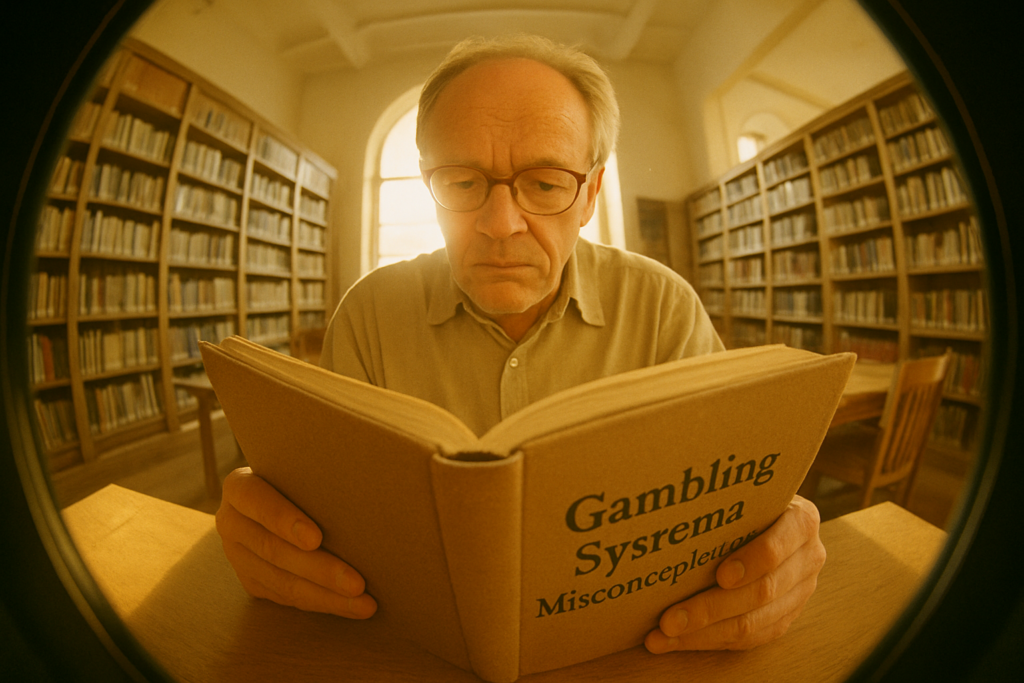Breaking Down the Basics
Gambling systems have a magnetic pull. They promise order in chaos a way to beat the odds if you just follow the right set of rules. For many players, that’s part of the thrill. The idea that you can outsmart the casino by managing your bets or spotting a “pattern” hits deep.
At the core of this appeal is psychology. Humans are wired to spot patterns especially in situations with high stakes or uncertainty. A couple of wins in a row? That must mean you’re onto something. A losing streak? Just follow the next step in your system and the “rebound” is coming. It’s the illusion of control: the comforting lie that if you do it right, you can shift the odds in your favor.
But here’s the hard truth. The house always has the edge. It’s built into the rules, the payouts, everything. In most games, the best a player can do is limit losses, not reverse the math. Systems like Martingale or Fibonacci don’t change probability they just make you feel like they do. That feeling keeps players chasing, believing. And that’s what the house counts on.
Popular Systems, Demystified
Let’s get one thing straight: betting systems don’t beat the house they just shape how fast you lose. Below is a breakdown of popular strategies gamblers try, and why they crack when reality kicks in.
Martingale is the poster child here. The idea is simple: double your bet after every loss. Eventually, one win resets the cycle and grabs all the lost money back on paper. In real life, tables have betting limits and wallets aren’t bottomless. A short streak of bad luck and you’re either out of cash or out of allowable bets. Game over.
Then there’s the Fibonacci system. Based on the sequence (1, 1, 2, 3, 5, 8, etc.), you increase your bet following each loss and step backwards after a win. Sounds smarter than Martingale, but the risk still climbs fast. You’re stacking losses waiting for that rebound, and when it doesn’t arrive soon enough, the math caves in.
Now take Paroli, the so called “positive progression.” After a win, you double your bet. After a loss, you shrink back to your base amount. This feels safe, even clever. But it banks on streaks, and those don’t always show up when needed. You win three in a row and feel like a genius until five quiet rounds wipe it all out.
Here’s the thing: each system looks tidy on a notepad. But real world conditions variance, table limits, emotional decision making blow them wide open. None of these strategies remove the mathematical edge the house holds. At best, they pace your downfall. At worst, they give a false sense of control right before the fall.
What Actually Works (and What Doesn’t)

If you’re looking for games where skill can tip the odds look to blackjack and poker. These aren’t your average spin the wheel gambles. In blackjack, you’re working against the house, but basic strategy and card counting can reduce the house edge if done right (and if the casino doesn’t catch you). Poker? Entirely different game. It’s about reading people, managing risk, and smart betting not the cards you’re dealt, but how you play them. That’s why professionals exist in this space.
Now let’s talk about a classic fallacy: hot and cold tables. Truth is, the cards don’t remember, the dice don’t care. There’s no heat or chill in random outcomes. That blackjack table that “feels hot” is probably just a run of good variance or selective memory. Same with slot machines. Machines aren’t on a streak; people are just noticing the wins and ignoring the losses in between.
Game mechanics are tightly controlled for randomness. Slots use RNGs (random number generators) for every spin. Roulette outcomes aren’t rigged by the color runs. That’s how the house maintains its edge: by sticking to math, not momentum.
A lot of gamblers blur lines between strategy and superstition. They bring good luck charms, sit in the same seat, follow patterns that don’t exist. It helps them feel in control but it doesn’t change the math.
Want more on what’s real and what’s not? Check out this deeper casino myth busting guide on separating fact from fiction at the tables.
Bankroll Management: The Only Real System That Matters
Let’s drop the fantasy: no betting pattern or secret formula will outsmart the house. What actually matters? Bankroll management. It’s the one system rooted in reality and in math. Not as flashy as Martingale strategies or Fibonacci progressions, but far more effective at keeping you in the game without wrecking your wallet.
Good bankroll management means playing with a budget you can afford to lose and structuring bets accordingly. No chasing losses. No “just one more spin” energy. It’s discipline over hope, and long term thinking over heat of the moment feels.
Short term wins? Don’t get cocky. They happen, but they’re streaks not strategy. Over time, variance and volatility will show up. That’s just math. One night you’re up, the next, not so much. Understanding that swings happen protects you from making desperate plays when fortune turns the other way.
Bottom line: bankroll management won’t make you rich, but it will keep you afloat. It’s your seatbelt in a car that’s always speeding around the edge of probability. Wear it.
Red Flags to Avoid
The internet is full of “guaranteed” betting systems that promise to crack the code of casino games. Flashy names, bold claims, slick websites it all looks convincing. But here’s the uncomfortable truth: if any of them actually worked, they wouldn’t be for sale. Casinos would patch the loophole or blacklist the approach. The fact that whole businesses are built on selling these systems says more about desperation than innovation.
Most of these strategies rely on pattern recognition that simply doesn’t hold water in truly random games. Whether it’s spinning wheels or shuffled cards, the odds don’t ‘remember’ what happened last round. There’s no hidden rhythm. Systems built on past outcomes thinking a roulette wheel is “due” for red, for example are chasing ghosts.
Even more dangerous are the emotional systems disguised as logic. Some pitch the idea of increasing your bets when you’re “on a streak” or doubling down after each loss because “you’re due a win.” That’s not a system, that’s wishful thinking wearing a spreadsheet.
The core problem? People believe because they want to. Fast wins are seductive, and the illusion of control is comforting. But as covered in Casino myth busting (again), belief can be a liability at the tables. When emotion overrides math, losses pile up fast.
Final Takeaways
At some point, the numbers catch up with everyone. Every game you play in a casino physical or digital comes with a built in house edge. That’s not a bug; it’s the business model. And no strategy, system, or “secret method” will ever outlast that long term mathematical disadvantage.
The only way to play smart is to play within your means. This means setting strict bankroll limits, walking away when you’re ahead (or not too deep in the hole), and treating gambling like what it is: entertainment. If you happen to win, great. If you don’t, it shouldn’t break you.
Think of every “system” as a short term coping tool, not a long term solution. The truth is more boring than most players want: controlled risk, clear boundaries, and no illusions about getting rich. If you’re not enjoying the game without chasing a jackpot, you’re in the wrong seat.

 Oliver Paget is a seasoned gambling advisor and prolific article writer, contributing his extensive knowledge and expertise to Gamble Guru Gate. With a background steeped in the gambling industry, Oliver has become a trusted voice for both novice and experienced gamblers seeking reliable information and strategic advice.
Oliver's journey into the gambling world began with a fascination for the statistical and psychological aspects of gaming. This curiosity led him to pursue advanced studies in statistics and psychology, equipping him with a deep understanding of game theory, risk management, and player behavior. His academic background, combined with hands-on experience in various gambling environments, allows Oliver to offer a well-rounded perspective on the industry.
Oliver Paget is a seasoned gambling advisor and prolific article writer, contributing his extensive knowledge and expertise to Gamble Guru Gate. With a background steeped in the gambling industry, Oliver has become a trusted voice for both novice and experienced gamblers seeking reliable information and strategic advice.
Oliver's journey into the gambling world began with a fascination for the statistical and psychological aspects of gaming. This curiosity led him to pursue advanced studies in statistics and psychology, equipping him with a deep understanding of game theory, risk management, and player behavior. His academic background, combined with hands-on experience in various gambling environments, allows Oliver to offer a well-rounded perspective on the industry.
